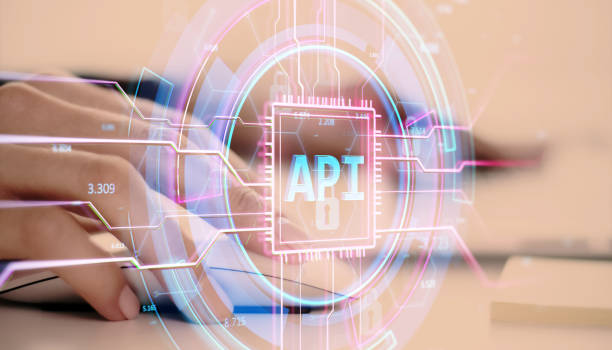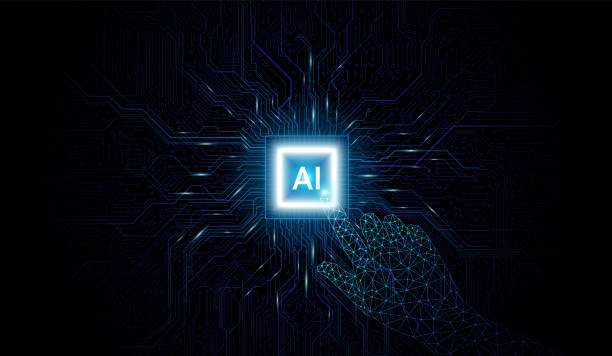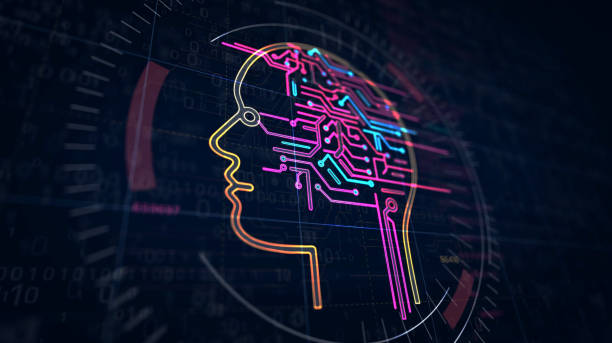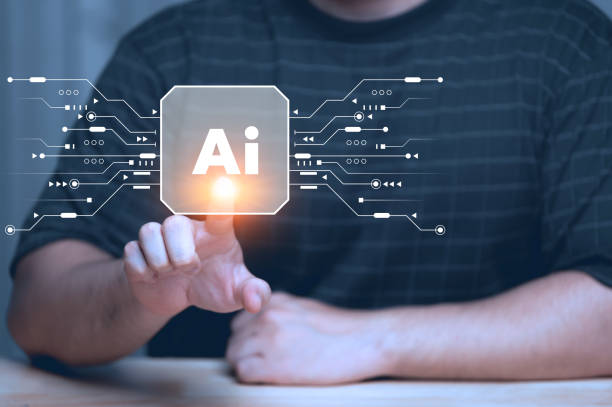What is Artificial Intelligence? A Comprehensive and Practical Definition

#Artificial_Intelligence (artificial intelligence) or simply AI, in short, is a branch of computer science dedicated to designing and developing systems that can perform tasks that typically require human intelligence.
These tasks include learning, reasoning, problem-solving, natural language understanding, pattern recognition, and decision-making.
In other words, AI strives to enable machines to think, learn, and act.
By utilizing machine learning and other techniques, AI systems can extract patterns from data and use these patterns to make more informed decisions.
AI is rapidly evolving and has found widespread applications in various industries, from healthcare to finance and transportation.
This technology not only helps improve efficiency and productivity but also provides new opportunities for innovation and solving complex problems.
Does your current website convert visitors into customers or scare them away? Solve this problem forever with professional corporate website design by Rasav!
✅ Build powerful credibility and branding
✅ Attract target customers and increase sales
⚡ Get a free consultation now!
A Brief History of Artificial Intelligence from Inception to Today

The idea of building machines that can think dates back to ancient times, but AI as a scientific discipline is relatively new.
In the 1950s, with early advancements in computer science, researchers like Alan Turing and John McCarthy seriously addressed this topic.
The Turing Test, proposed by Alan Turing, is known as a criterion for measuring machine intelligence.
During the 1960s and 1970s, significant advancements were made in areas such as problem-solving and natural language processing.
However, hardware limitations and a lack of data led to a stagnation in AI.
In the 1980s, with the emergence of expert systems, interest in AI surged again, but these systems also faced limitations.
Today, with immense advancements in processing power and access to vast amounts of data, AI is experiencing a renaissance and is becoming a transformative technology in many fields.
Types of Artificial Intelligence by Capabilities and Applications

Artificial intelligence can be categorized into different types based on its capabilities and applications.
One of the most common classifications divides AI into two categories: Narrow AI and General AI.
Narrow AI, also known as limited AI, is designed to perform specific tasks and excels within its functional domain.
Examples of Narrow AI include facial recognition systems, voice assistants like Siri and Alexa, and recommendation systems.
General AI, also known as Artificial General Intelligence (AGI), aims to create machines that can perform any task a human can.
General AI is still in its early stages of development, and achieving it is considered a significant challenge.
| Type of AI | Description | Examples |
|---|---|---|
| Narrow AI | Designed to perform specific tasks | Facial recognition, voice assistants |
| General AI | Capable of performing any task a human does | Still in early stages of development |
Machine Learning and its Role in AI Development

Machine Learning is a crucial subfield of AI that enables machines to learn from data without being explicitly programmed.
In essence, machine learning empowers machines to identify patterns by analyzing data and use these patterns to make better predictions and decisions.
There are various methods for machine learning, including supervised learning, unsupervised learning, and reinforcement learning.
Supervised Learning means that the machine is trained using labeled data.
In this method, input data along with the expected output is provided to the machine, and the machine tries to learn patterns that can associate inputs with correct outputs.
Unsupervised Learning means that the machine is trained using unlabeled data.
In this method, the machine tries to identify hidden patterns and structures in the data.
Reinforcement Learning means that the machine learns how to perform a task optimally by trial and error and receiving rewards or penalties.
Did you know that poor online store design can scare away up to 70% of your potential customers? Rasav revolutionizes your sales with professional and user-friendly e-commerce website designs.
✅ Significant increase in sales and revenue
✅ Full optimization for search engines and mobile
⚡ [Get a free consultation from Rasav]
Applications of Artificial Intelligence in Various Industries

AI currently has widespread applications across various industries.
In healthcare, AI is used for diagnosing diseases, developing new drugs, and providing personalized medical care.
In the automotive industry, AI is used for developing self-driving cars, improving vehicle safety, and optimizing fuel consumption.
In the financial sector, AI is used for fraud detection, risk management, and providing personalized financial services.
In the retail industry, AI is used for improving customer experience, optimizing supply chains, and offering personalized recommendations.
Additionally, AI has growing applications in other areas such as education, agriculture, energy, and entertainment.
With the increasing advancement of this technology, it is expected that the applications of AI will become more extensive and diverse in the future, profoundly impacting our lives.
Challenges and Concerns Related to Artificial Intelligence

Despite the numerous benefits of AI, this technology also brings challenges and concerns.
One of the most significant concerns is the impact of AI on the job market.
Some experts believe that AI could lead to the loss of many jobs, especially those involving repetitive and routine tasks.
Another concern is the ethical issues associated with AI.
For instance, the use of AI in facial recognition systems can lead to discrimination and privacy violations.
Furthermore, issues related to security and trustworthiness are also among the important challenges of AI.
If AI systems are not properly designed and implemented, they may be vulnerable and susceptible to misuse.
To address these challenges, policymakers, researchers, and industry professionals must collaborate to establish appropriate legal and ethical frameworks for the development and use of AI.
Artificial Intelligence and Its Impact on Daily Life

AI currently has a significant impact on our daily lives.
From recommendation systems that suggest our favorite movies and music to voice assistants that answer our questions and perform daily tasks, AI has increasingly permeated our lives.
In the future, the impact of AI on our lives is expected to grow even further.
Self-driving cars, smart homes, and personalized healthcare services are just a few examples of applications that can dramatically change our lives.
However, to fully benefit from AI, we must also address the associated challenges and concerns and ensure that this technology is developed and used responsibly and ethically.
| Area | AI Application | Example |
|---|---|---|
| Entertainment | Movie and music recommendations | Netflix, Spotify |
| Transportation | Self-driving cars | Tesla |
| Healthcare | Disease diagnosis | IBM Watson Health |
| Smart Homes | Energy and security management | Google Nest |
What Will Be the Future of Artificial Intelligence? Predictions and Possibilities

Predicting the future of AI is challenging, but many experts believe that this technology will become increasingly powerful and pervasive in the future.
Some predictions suggest that in the future, AI will be able to automatically perform many tasks currently carried out by humans.
This could lead to increased productivity, reduced costs, and an improved quality of life.
However, other experts warn about the potential dangers of AI.
They believe that if AI is not properly controlled, it could lead to disastrous outcomes such as job losses, increased inequality, and even threats to global security.
To fully benefit from AI and prevent its dangers, it is essential to seriously address the ethical and social issues associated with this technology and establish appropriate legal and ethical frameworks for its development and use.
Research shows that 80% of customers trust companies with professional websites more. Does your current website inspire this trust?
With Rasav’s corporate website design services, solve the problem of customer mistrust and a weak online image forever!
✅ Create a professional image and increase customer trust
✅ Attract more sales leads and grow your business
⚡ Get a free consultation
How to Learn Artificial Intelligence? Resources and Learning Paths

If you are interested in learning AI, various resources and learning paths are available to you.
You can enhance your knowledge and skills in this field by participating in online or in-person courses, studying books and articles, and undertaking practical projects.
Some of the best AI learning resources include courses from Coursera, edX, Udacity, and DataCamp.
Furthermore, many books and articles on AI have been published, which you can use to learn various concepts and techniques.
To begin, you can study books such as “Artificial Intelligence A Modern Approach” by Stuart Russell and Peter Norvig, and “Deep Learning” by Ian Goodfellow, Yoshua Bengio, and Aaron Courville.
Additionally, attending AI conferences and workshops can provide a good opportunity to learn from experts and become familiar with the latest advancements in the field.
Key Points and Summary about Artificial Intelligence

AI is a powerful and transformative technology that can profoundly impact our lives.
This technology currently has widespread applications across various industries, and its uses are expected to expand even further in the future.
However, AI also comes with challenges and concerns that need to be addressed.
To fully benefit from AI and prevent its dangers, it is essential to develop and use this technology responsibly and ethically.
In this article, we explored the fundamental concepts of AI, its history, types, applications, challenges, and future.
We hope this article has helped you gain a better understanding of AI and enabled you to utilize this technology effectively.
Remember that learning AI is a continuous process, and to succeed in this field, you need to continuously update your knowledge and skills.
Frequently Asked Questions
| Question | Answer |
|---|---|
| 1. What is Artificial Intelligence (AI)? | It is a branch of computer science that aims to create machines capable of simulating human intelligence and performing tasks that require human thinking, such as learning, problem-solving, and decision-making. |
| 2. What are the main types of Artificial Intelligence? | They can be classified into Narrow AI, which focuses on a specific task; General AI, which possesses comprehensive human capabilities; and Super AI, which surpasses human intelligence. |
| 3. Mention some common applications of Artificial Intelligence in our daily lives. | These include voice assistants (such as Siri and Alexa), recommendation systems (such as Netflix and Amazon), self-driving cars, facial recognition systems, and spam filters. |
| 4. What is the difference between Artificial Intelligence and Machine Learning? | Artificial Intelligence is the broader concept of creating intelligent machines, while Machine Learning is a subset of AI that focuses on enabling systems to learn from data without explicit programming. |
| 5. What is Deep Learning? | It is a subset of Machine Learning that uses multi-layered artificial neural networks (deep neural networks) to process data and discover complex patterns, and it is used in image and speech recognition. |
| 6. What are the most prominent benefits of Artificial Intelligence? | Improving efficiency and productivity, automating repetitive tasks, making better decisions based on big data analysis, and developing solutions for complex problems in fields such as medicine and science. |
| 7. What are the main challenges facing the development and deployment of Artificial Intelligence? | These include the need for massive amounts of high-quality data, privacy and security issues, bias in data and algorithms, and high development and maintenance costs. |
| 8. Does Artificial Intelligence raise ethical or social concerns? | Yes, it raises concerns related to privacy, algorithmic bias, job displacement due to automation, accountability for errors made by intelligent systems, and the need for a regulatory framework. |
| 9. How can Artificial Intelligence affect the future of the job market? | It can lead to the automation of some routine jobs, but it will also create new jobs requiring advanced skills in developing, operating, and maintaining AI systems. |
| 10. What are some modern or promising technologies in the field of Artificial Intelligence? | These include advanced Natural Language Processing (NLP) (such as large language models like ChatGPT), computer vision, robotics, and Generative AI. |
And other advertising services from Rasa Web advertising agency
- Smart Reportage: A combination of creativity and technology for online growth through custom programming.
- Smart SEO: A dedicated service for growth based on smart data analysis of customer behavior.
- Smart SEO: A fast and efficient solution for user interaction with a focus on SEO-driven content strategy.
- Smart Data Analysis: A new service for boosting website visits by using real data.
- Smart Customer Journey Map: A new service for boosting click-through rates by designing an attractive user interface.
And over a hundred other services in the field of internet advertising, advertising consulting, and organizational solutions
Internet Advertising | Advertising Strategy | Advertorial
Sources
Wikipedia – Artificial IntelligenceZoomit – Artificial IntelligenceFaradars – Applications of Artificial IntelligenceIRNA – Artificial Intelligence
? With the specialized services of “Rasav Afarin” Digital Marketing Agency, from secure and attractive website design to professional optimization, achieve your digital marketing goals and establish a powerful web presence.
📍 Tehran, Mirdamad Street, next to Bank Markazi, Kazerun Jonubi Alley, Ramin Alley, No. 6




